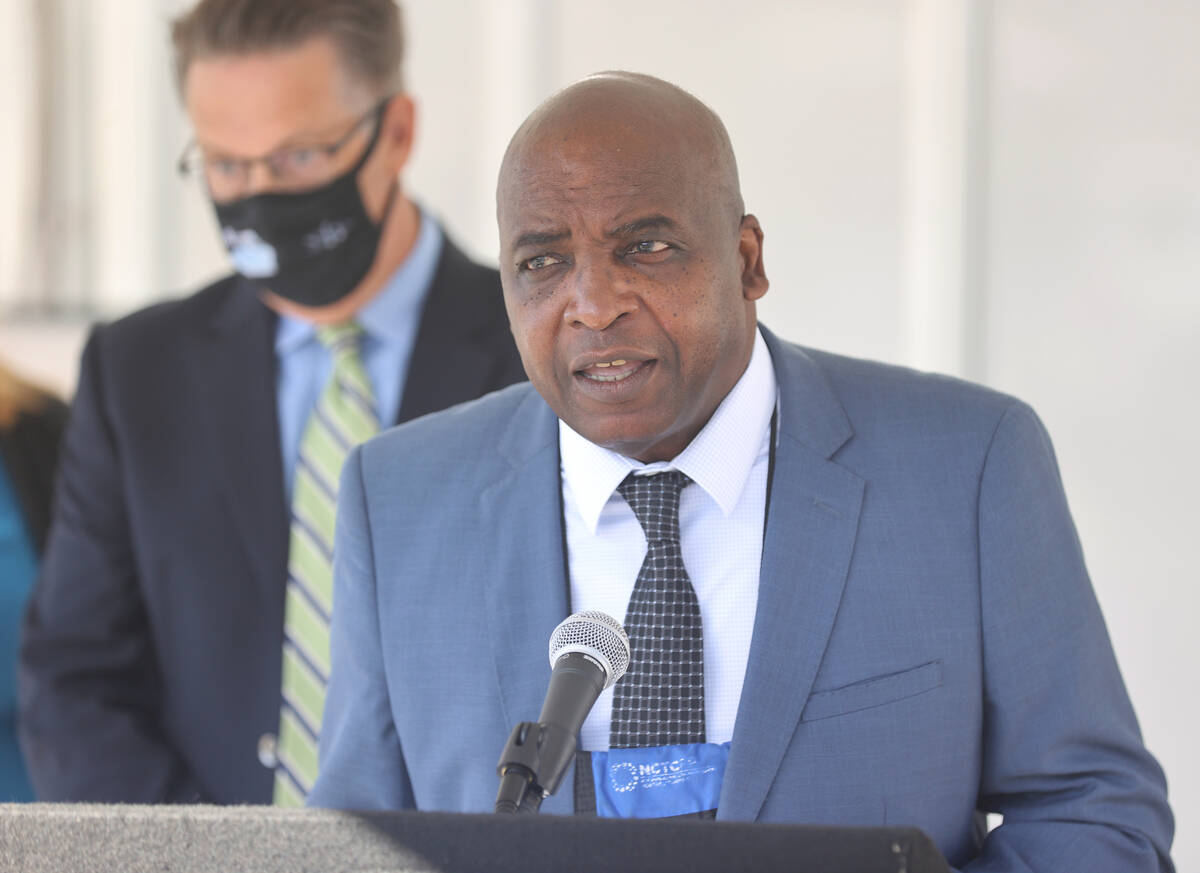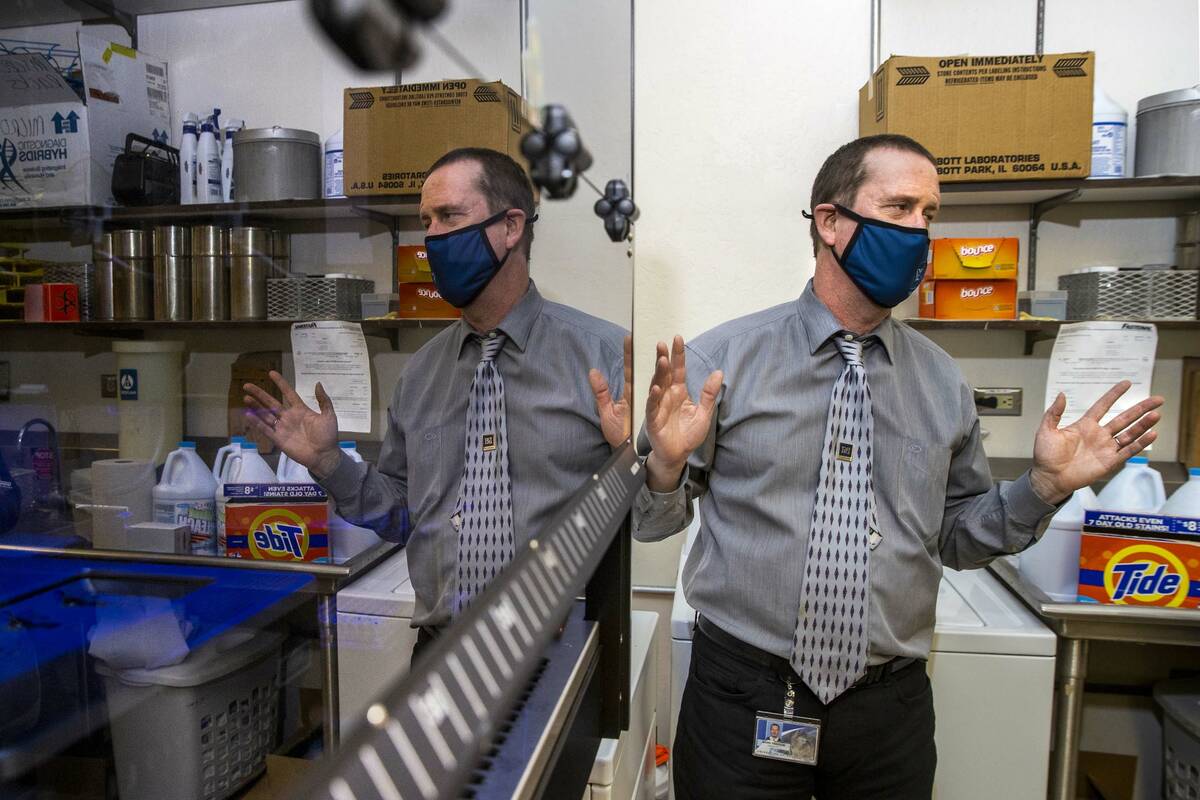Clark County woman is Nevada’s first detected omicron case
The Southern Nevada Health District on Tuesday reported the first case detected in Nevada of the omicron variant of COVID-19.
The case of the new coronavirus strain, classified as a “variant of concern” by the World Health Organization in late November, was found in a fully vaccinated Clark County woman in her mid-20s, the district said.
The woman is not hospitalized, said a health district representative, who did not specify whether she had traveled to a country where the variant is prevalent.
“We are in the process of interviewing her and will provide additional details when we have them,” representative Jennifer Sizemore said.
Nevada joins at least 30 other states in the U.S. in having identified a case of omicron, a strain first detected in South Africa that has been found in at least 60 countries.
“We knew that it was only a matter of time that we would identify the omicron variant in Southern Nevada,” Dr. Fermin Leguen, the district health officer, said in a news release.
The Nevada woman, though fully vaccinated, had not received a booster shot. Some recent studies have shown that a booster helps to protect against the new variant, which has mutations that may make it more transmissible and more capable of evading antibodies from vaccination or prior infection.
“The omicron variant in Nevada is a reminder to all those who have not completed their COVID-19 vaccination series, that vaccination can protect against serious illness,” said Nevada State Epidemiologist Melissa Peek-Bullock.
Leguen delivered a similar message. “People can protect themselves from all variants of the COVID-19 virus by getting fully vaccinated and getting a booster when they are eligible, wearing a mask in public indoor settings, regardless of their vaccination status, and staying home and getting tested if they are sick,” he said.
The case was detected through genetic analysis of a test specimen by the Southern Nevada Public Health Laboratory. The delta variant remains the dominant strain in Clark County, Nevada and the U.S.
Two weeks ago, omicron accounted for less than 0.5 percent of the coronaviruses that were genetically sequenced in the U.S. That rose to about 3 percent last week, the Centers for Disease Control and Prevention reported Tuesday, according to the Associated Press.
An analysis Tuesday of data from South Africa, where the new variant is driving a surge in infections, suggests the Pfizer vaccine offers less defense against infection from omicron and reduced, but still good, protection from hospitalization.
It’s unclear whether omicron’s rapid spread will overwhelm hospitals. In South Africa, although case numbers are rising, hospital admissions for adults diagnosed with COVID-19 are lower compared with the wave the country experienced in mid-2020, according to the new analysis.
Mark Pandori, director of the Nevada State Public Health Laboratory in Reno, sees no silver lining in the possibility that a less lethal strain will become the dominant one.
“We don’t need a new infectious agent that is more infectious than flu around every year, spreading constantly and therefore evolving continuously,” he said. “This is a huge resource drain on Earth for the public health and medical community to face.
“And the more it replicates, well, the more it will change,” he said about the virus. “This won’t stop at omicron. Who knows what you evolve to next if you let it keep evolving.”
Contact Mary Hynes at mhynes@reviewjournal.com or 702-383-0336. Follow @MaryHynes1 on Twitter. The Associated Press contributed to this report.



















